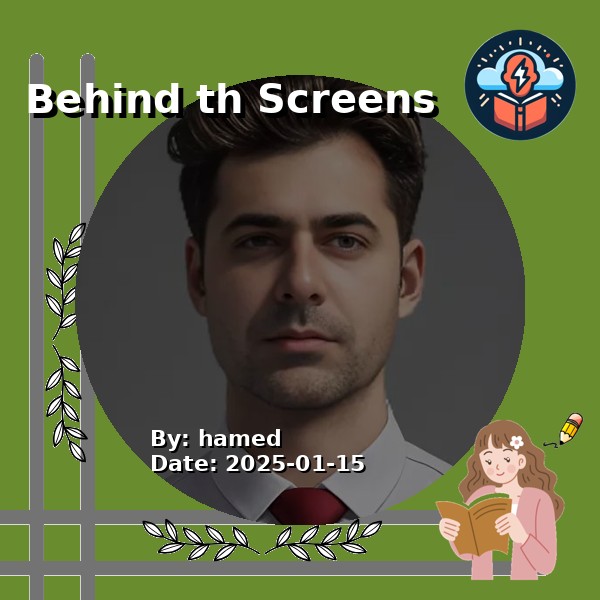Jenna stared at the screen, the cursor blinking like a reminder of everything she hadn’t done. It was 10 a.m., but it felt like a strange time, suspended somewhere between the days. The house was too quiet. She could hear the distant hum of the fridge, the soft click of her fingers on the keyboard. Outside, the world moved on—people still walked their dogs, kids played in the park—but inside, everything felt still.
It had been six months since the pandemic turned her office job into a remote one. At first, she had been excited. No more commutes. No more crowded trains or early mornings. She could wear sweatpants, sip coffee in peace, and get her work done from the comfort of her living room.
But now, everything was different. The novelty had worn off. Her days had become a blur of Zoom calls and emails, each one blending into the next. Her colleagues had become avatars, faces on screens that didn’t quite reach her. The banter that used to fill the office felt like a distant memory. No more quick chats at the coffee machine or after-hours drinks.
She had tried to create a routine. Woke up early. Made her bed. Ate breakfast. Logged on at 9. But something was missing. She felt disconnected, drifting between tasks without purpose. She missed the structure of an office, the noise of other people working, the camaraderie.
A ping from her chat window pulled her back into the present. "Great job on that presentation, Jenna. Your insights were really helpful!"
She blinked, then typed back a quick, grateful reply. But the compliment felt hollow. It was nice to be noticed, but it didn’t quite fill the space around her.
Her phone buzzed next. It was a text from her sister, Emma: “How’s it going? Are you hanging in there?”
Jenna hesitated, then typed: “Yeah, just adjusting. Work is... fine. I guess.”
“You don’t sound fine.” Emma’s response was quick, as always. “Let’s Zoom tonight. I miss you.”
Jenna smiled, but the thought of another Zoom call felt exhausting. The idea of seeing her sister’s face on a screen seemed like another layer of the distance that already existed.
Still, the invitation lingered. Jenna glanced around her apartment, empty except for her and the faint echo of her own thoughts. Maybe she needed to reconnect. Maybe she needed to stop pretending everything was okay.
Later that evening, after the workday ended, Jenna logged into the video call. Her sister’s face appeared in a corner of the screen, the same familiar smile, the same warm eyes, despite the miles between them.
“Hey,” Emma said, leaning forward. “How’ve you really been?”
Jenna exhaled, feeling the weight of the question settle in her chest. She had been hiding it, pretending she was fine, but Emma saw through it.
“I’ve been... struggling,” Jenna admitted, her voice quieter than she expected. “I miss the office. I miss the people. I miss... feeling like I’m part of something, you know?”
Emma nodded, her expression softening. “I get it. I’m feeling the same way. But have you thought about... doing something outside of work? Something for you?”
Jenna paused. The question caught her off guard. She hadn’t really allowed herself to think beyond the tasks in front of her—emails, reports, meetings. What did she do when she wasn’t working?
“I don’t know,” she said, shrugging. “What would I even do?”
“Have you tried drawing?” Emma asked. “You used to love it. Remember when we used to sketch in the backyard after school? You were really good.”
Jenna blinked, the memory catching her off guard. She hadn’t picked up a pencil in years. It felt like a lifetime ago, another person. But the thought lingered. She missed it—the feeling of the pencil on paper, the way the world seemed to slow down when she was focused on creating.
“I could try,” Jenna said, the spark of an idea flickering to life.
The next morning, after a long meeting, Jenna walked over to her old desk in the corner of her apartment, dusted off her sketchbook, and opened it. For the first time in months, she took the pencil in her hand and began to draw.
It wasn’t perfect. It didn’t need to be. The lines were uneven, the proportions off, but it didn’t matter. What mattered was the feeling—the slow, grounding focus that came with creating something just for herself.
As the days passed, Jenna found herself making more time for her sketches. She discovered online communities of artists who shared their work, offered feedback, and encouraged each other. For the first time in months, she felt connected to people in a way that wasn’t tied to work. She was part of something bigger, something that didn’t require emails or deadlines.
Remote work had changed her life in ways she hadn’t expected. It had isolated her, but it had also opened doors she hadn’t realized were there. Jenna still struggled with the quiet, with the absence of face-to-face interaction. But now, she had a way to fill the silence—not with work, but with something she had forgotten she loved.
And for the first time in a long time, the quiet didn’t feel so empty.
